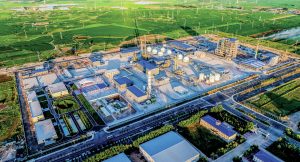
Yara seeking permit for rail transport of ammonia
Yara has applied for a new environmental permit in order to be able to import 275,000 t/a of ammonia by rail to its site at Tertre in the Saint-Ghislain municipality. The permit will cover ammonia to continue to operate downstream nitric acid and ammonium nitrate production at Tertre following the closure of the site’s 400,000 t/a ammonia plant. A public inquiry into the permit is expected to be completed in early September 2025. Yara says that train traffic to the site will increase to around 5 trains per week if the permit is granted.






